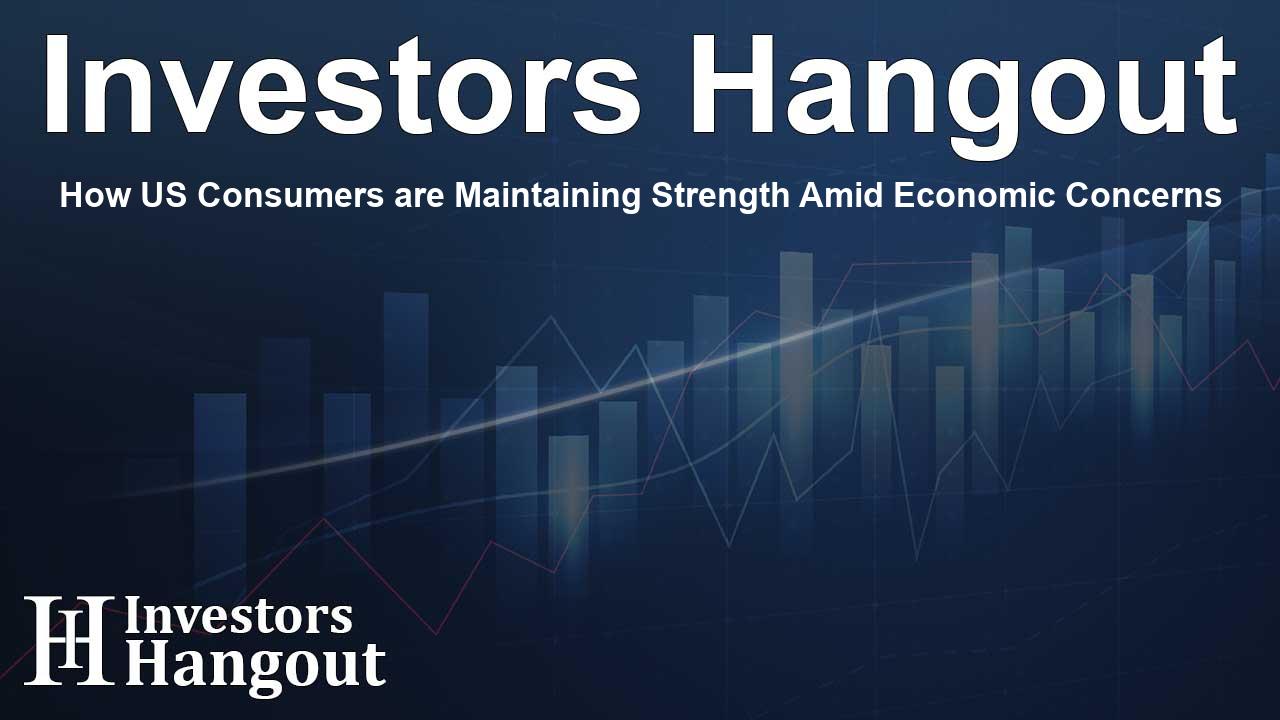How US Consumers are Maintaining Strength Amid Economic Concerns

US Consumers Show Resilience Despite Economic Pressures
US consumers are showing a remarkable level of resilience, according to two of the largest banks in the country. According to recent insights from top executives at these institutions, spending patterns in the third quarter remain solid, signaling underlying strength in consumer behavior. However, it's important to acknowledge that some households, particularly those with lower incomes, are feeling the pinch due to rising inflation.
Insights from Major Banks on Consumer Spending
JPMorgan Chase (NYSE: JPM) and Wells Fargo reported strong earnings last week, offering optimism to investors who have been worried that increased borrowing costs might derail consumer spending and trigger an economic slowdown. Jeremy Barnum, CFO of JPMorgan, elucidated that consumer spending has stabilized after the initial surge post-pandemic, where many Americans indulged in leisure activities such as travel and dining out.
Economic Landscape: A Mixed Picture
The labor market's recent performance has raised concerns that the Federal Reserve's rate hikes intended to control inflation may inadvertently lead the U.S. economy into a recession. Nevertheless, Barnum expressed confidence, stating that the current spending behaviors indicate consumers are in a good position and reflect a strong job market, pointing towards a potential scenario where the economy experiences a 'no-landing' outcome.
Wells Fargo's Take on Consumer Behavior
Wells Fargo's CFO, Michael Santomassimo, weighed in on consumer spending as well, highlighting that although the use of credit and debit cards has slightly decreased compared to earlier in the year, spending remains robust. The upcoming financial reports from Bank of America and Citigroup will provide a more comprehensive view of consumer behavior, and analysts suggest that current earnings reports are a positive sign.
Market Reactions and Bank Expectations
Taylor Krystkowiak, an investment strategist, noted that avoiding significant economic downturns could lead to substantial benefits for banks, reinforcing confidence in future growth. However, Santomassimo cautioned that the prolonged effects of inflation are beginning to impact lower-income consumers. The bank is closely monitoring whether these effects extend to higher-income households.
Shifts in Consumer Sentiment and Financial Behavior
Recent surveys indicate a dip in consumer sentiment, primarily due to ongoing frustrations over high prices. Paul Nolte, a senior wealth advisor, pointed out that the favorable spending statistics might be skewed towards higher-income consumers, with lower-income groups experiencing more significant challenges. Delinquencies on loans and rising credit card balances have become increasingly common among these households.
Bank Provisions for Potential Loan Defaults
Bearing in mind the economic climate, both JPMorgan and Wells Fargo have increased their provisions for potential loan defaults, with JPMorgan reserving $3.11 billion, up from $1.38 billion from a year prior. Wells Fargo has earmarked $1.07 billion, slightly down from the previous year. Despite a trend of rising credit card delinquencies, there have been signs of improvement in more recent data, suggesting a possible easing of financial strain for consumers.
The Future Outlook for Consumers and Banks
Analysts at Barclays are forecasting an ongoing normalization of credit card loan losses, although at a tempered pace. While optimism rises about consumer spending, it is crucial to remain attentive to the challenges faced by lower-income groups, ensuring that confidence in the economy doesn't overlook these struggles. The evolution of consumer behavior and bank performance will be closely followed in the upcoming months, as continued growth and adaptation will be key for both sectors.
Frequently Asked Questions
What is the current state of consumer spending in the US?
Consumer spending in the US has shown resilience, with solid patterns observed by major banks despite economic pressures from inflation.
Which banks have reported strong earnings recently?
JPMorgan Chase and Wells Fargo have both reported strong earnings, providing positive insights into consumer behavior and economic outlook.
How are lower-income consumers impacted by the economy?
Lower-income consumers are feeling the effects of rising inflation, indicated by increasing delinquencies and financial strain.
What measures are banks taking regarding potential loan defaults?
Banks like JPMorgan and Wells Fargo are setting aside substantial provisions to cover potential loan defaults, reflecting cautious optimism in their financial outlook.
What future trends are analysts predicting for consumer credit?
Analysts suggest a normalization of credit card loan losses, although they anticipate this process to occur at a slower pace than before.
About The Author
Contact Kelly Martin privately here. Or send an email with ATTN: Kelly Martin as the subject to contact@investorshangout.com.
About Investors Hangout
Investors Hangout is a leading online stock forum for financial discussion and learning, offering a wide range of free tools and resources. It draws in traders of all levels, who exchange market knowledge, investigate trading tactics, and keep an eye on industry developments in real time. Featuring financial articles, stock message boards, quotes, charts, company profiles, and live news updates. Through cooperative learning and a wealth of informational resources, it helps users from novices creating their first portfolios to experts honing their techniques. Join Investors Hangout today: https://investorshangout.com/
The content of this article is based on factual, publicly available information and does not represent legal, financial, or investment advice. Investors Hangout does not offer financial advice, and the author is not a licensed financial advisor. Consult a qualified advisor before making any financial or investment decisions based on this article. This article should not be considered advice to purchase, sell, or hold any securities or other investments. If any of the material provided here is inaccurate, please contact us for corrections.
